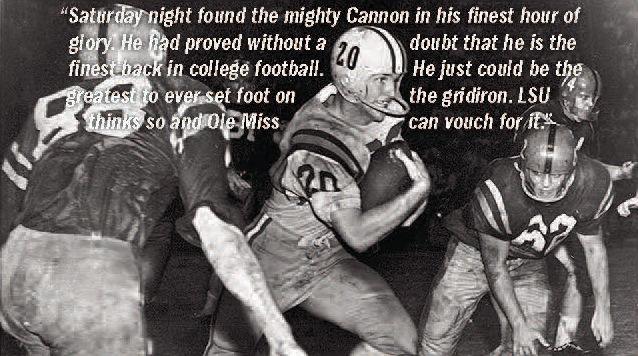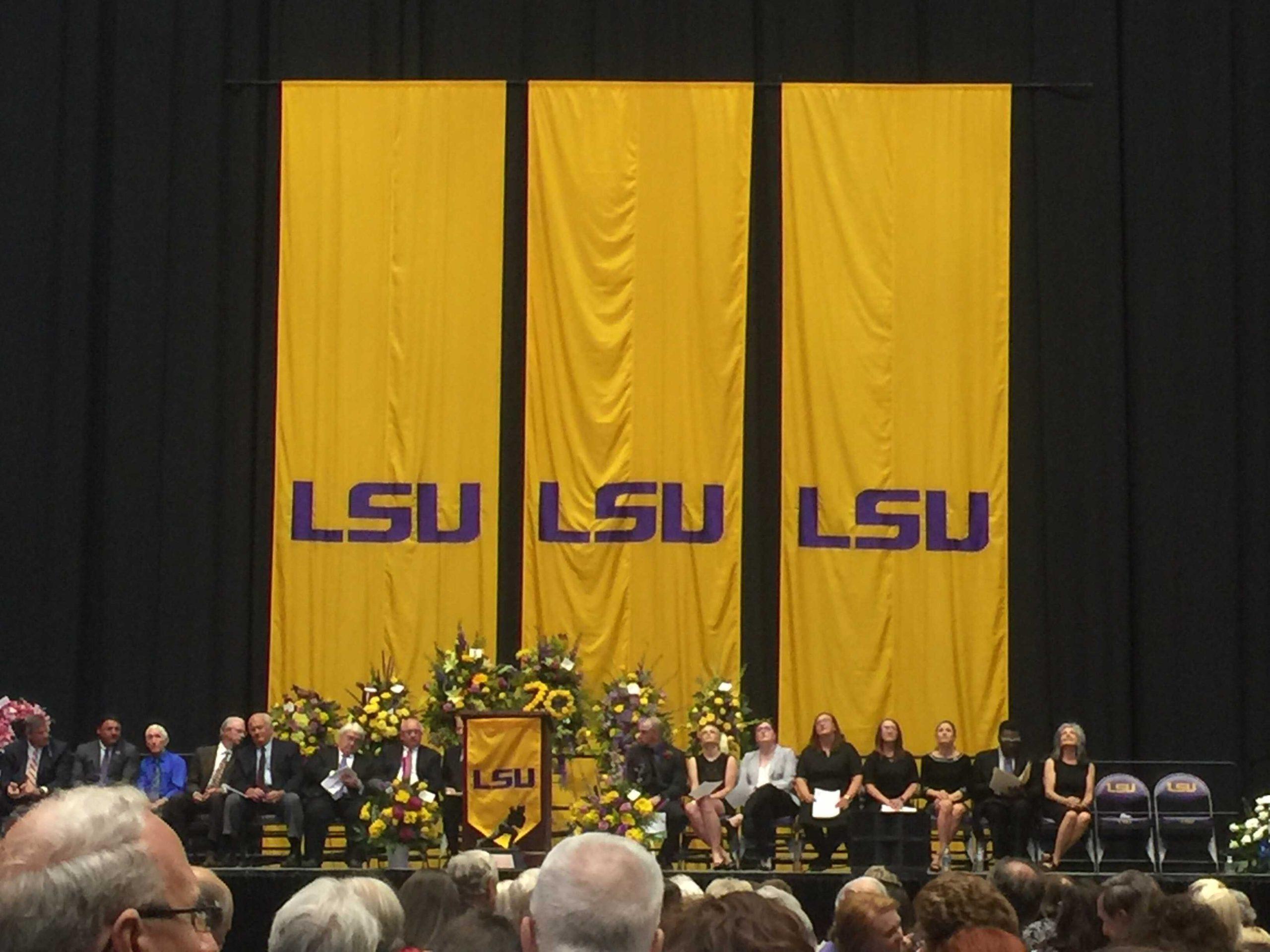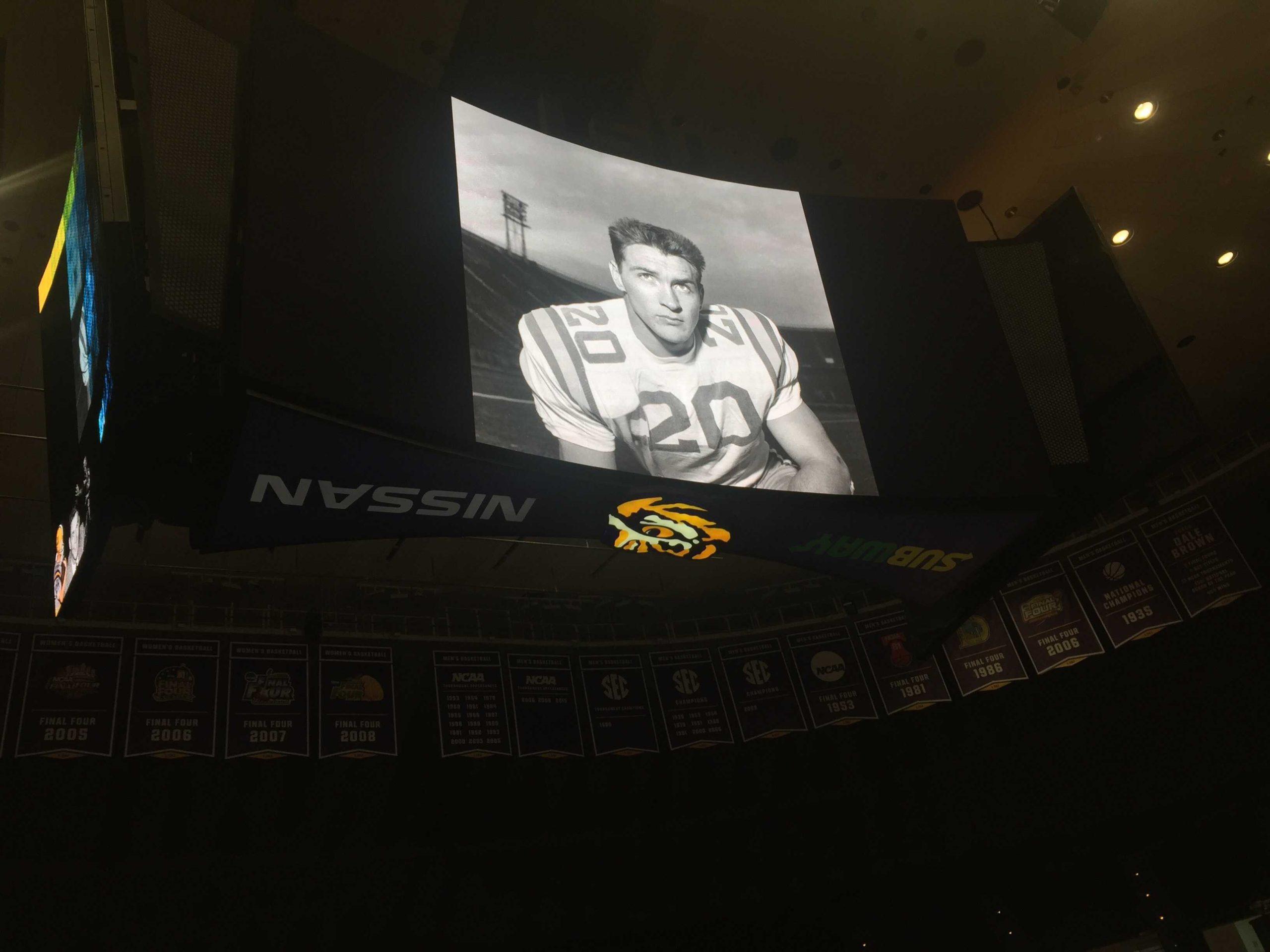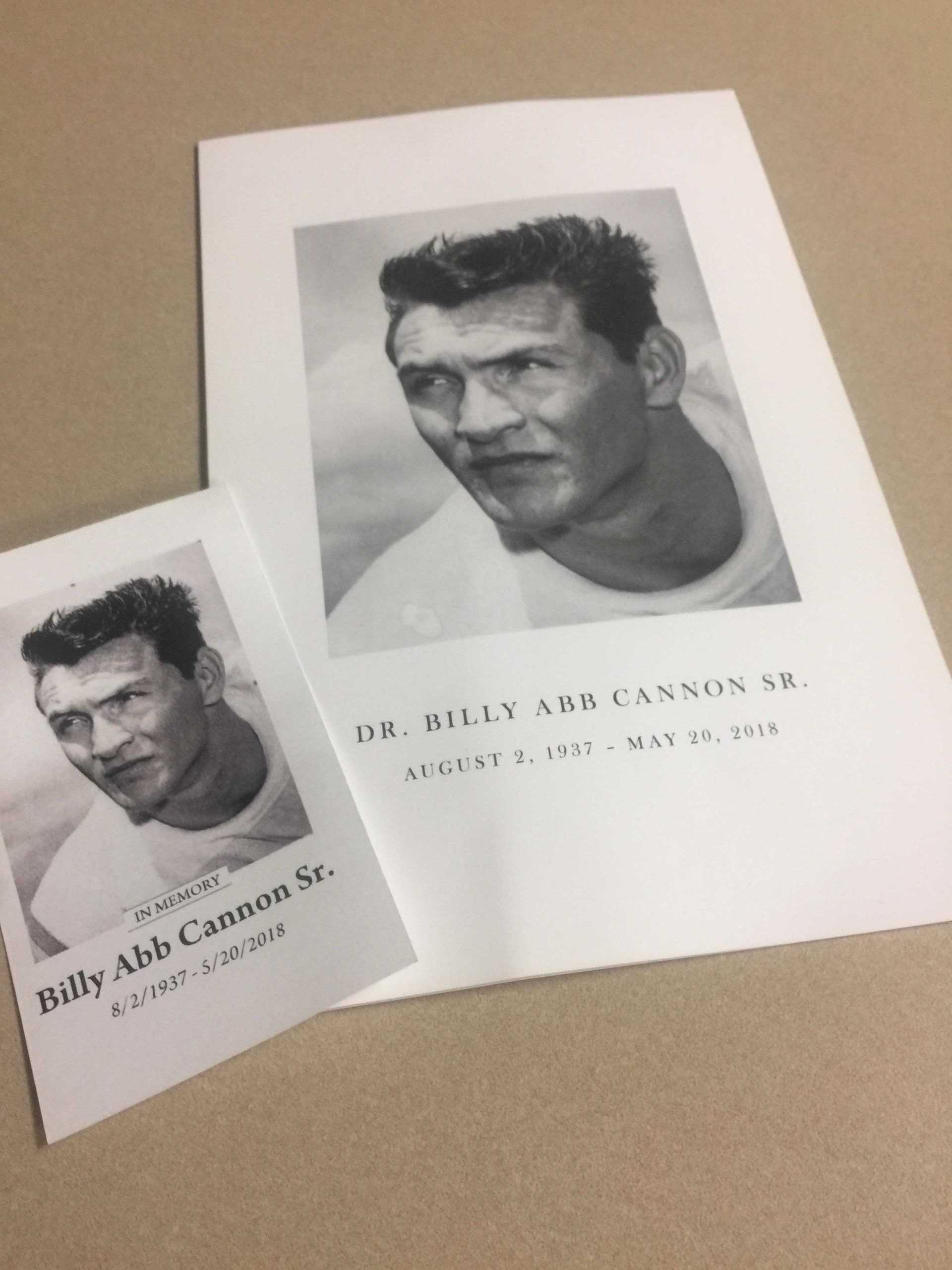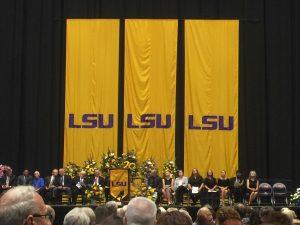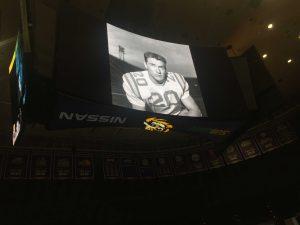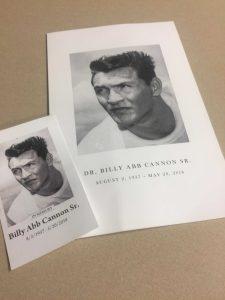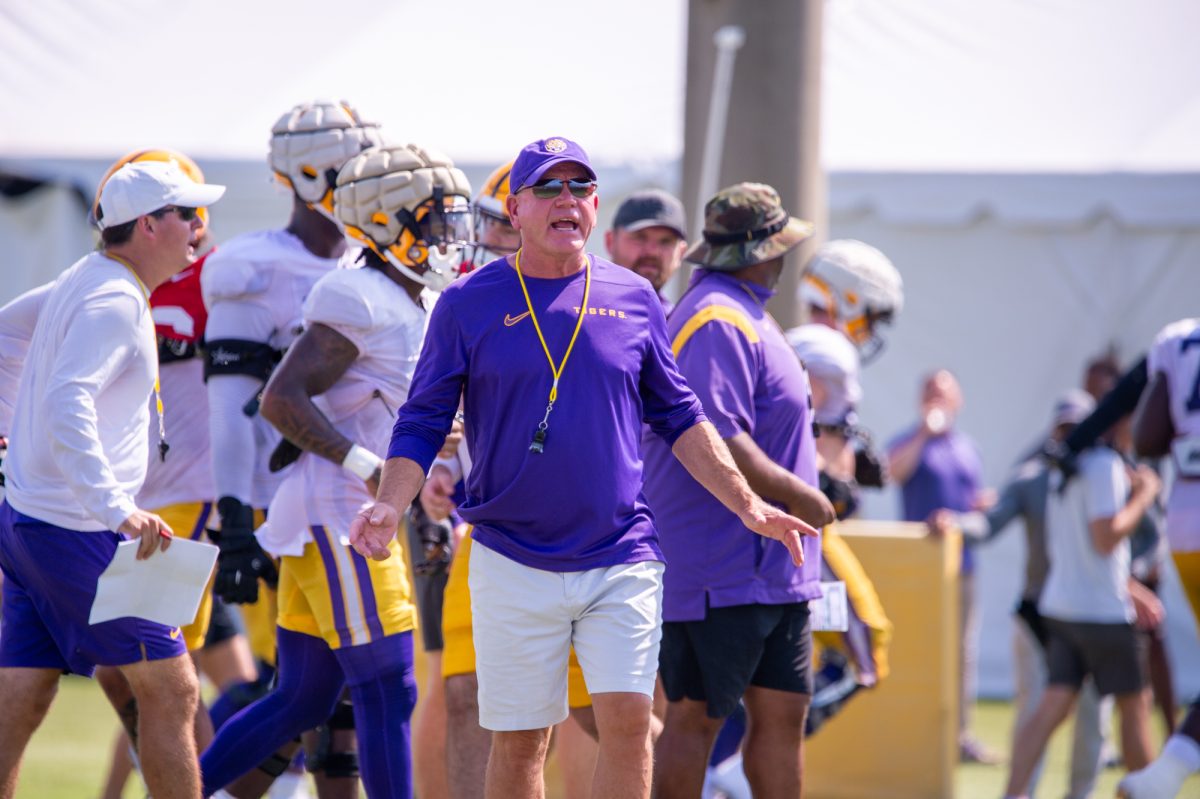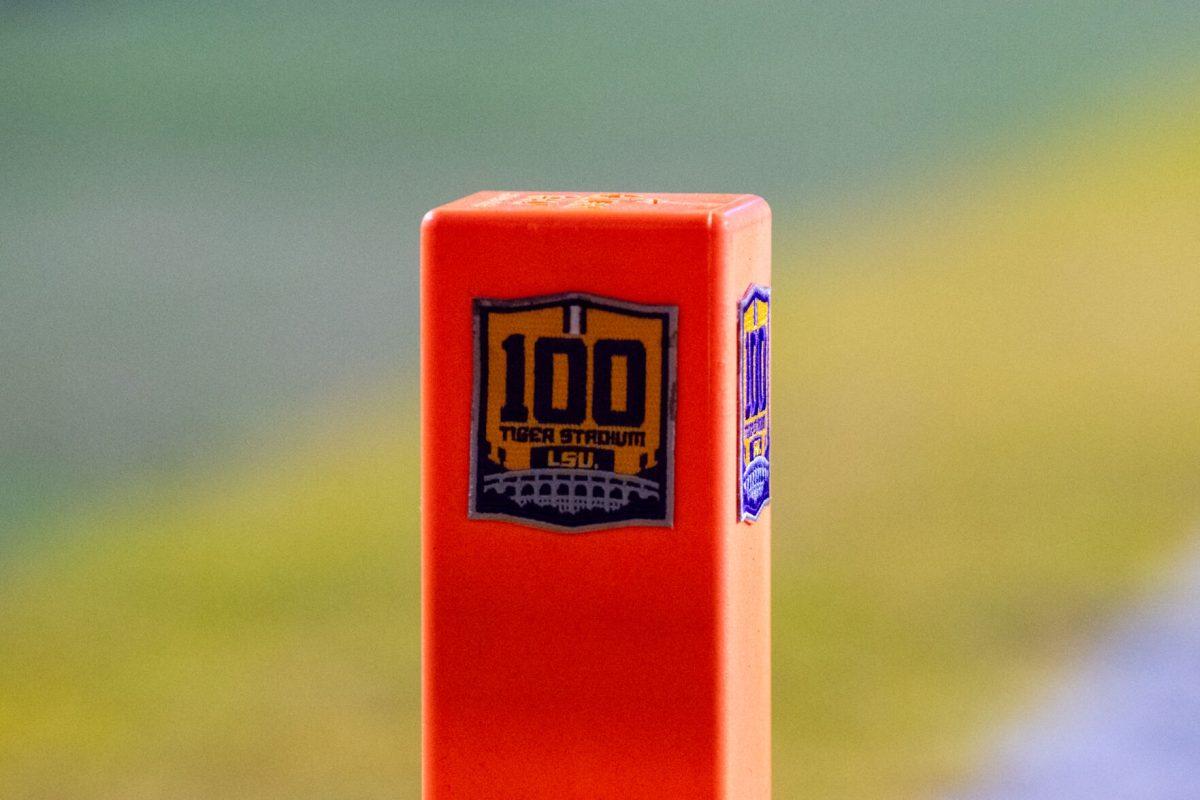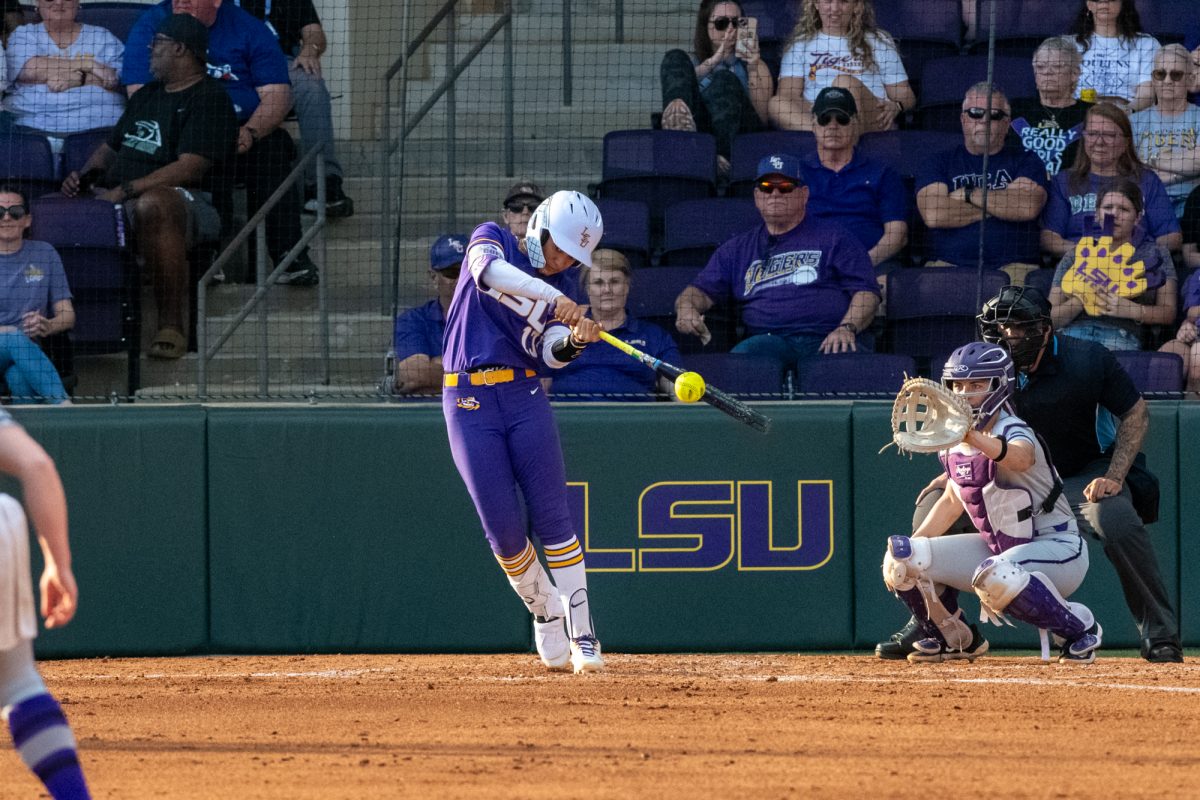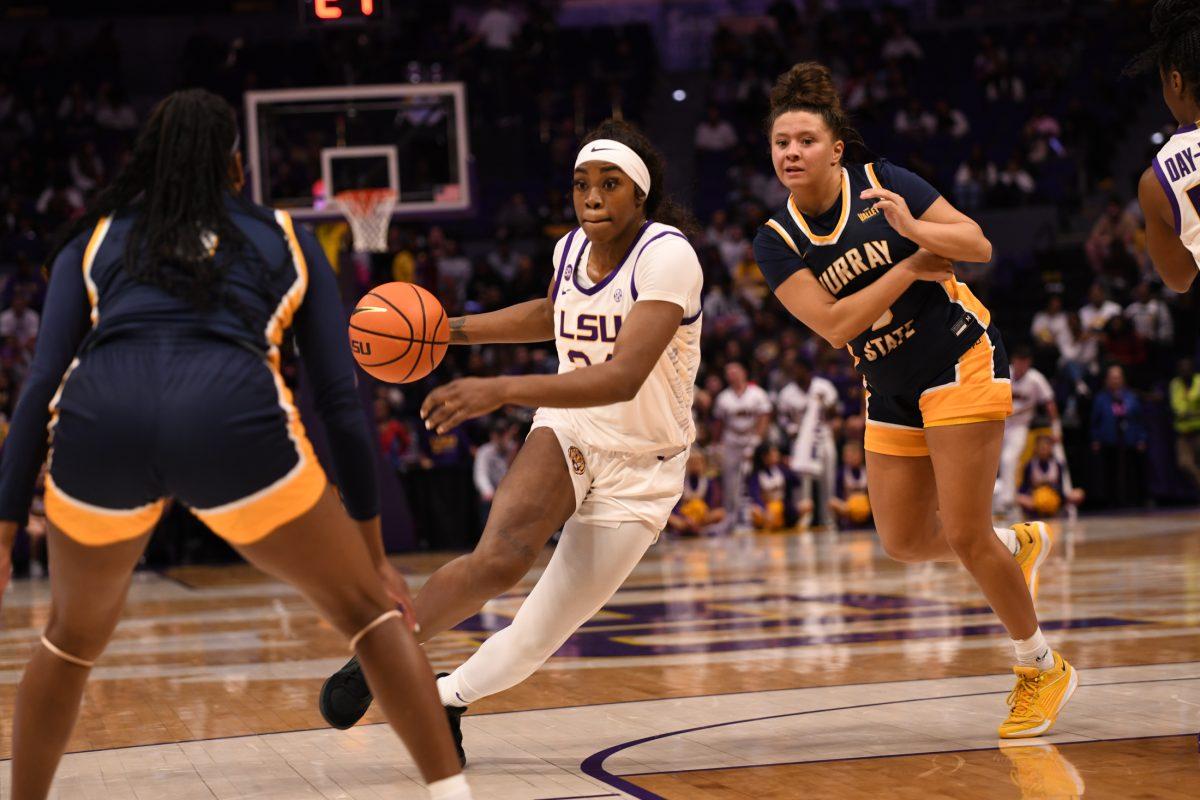Dr. Billy Cannon, Sr. was laid to rest Wednesday afternoon in front of hundreds of people, including family and friends, current and former staffers at the Louisiana State Penitentiary at Angola and members of the only undefeated team in LSU football history.
The memorial service was held at the Pete Maravich Assembly Center, and was open to the public. Cannon, the only Heisman Trophy winner in the 125-year history of LSU football, died at his home Sunday morning at the age of 80. Cannon’s number 20 is one of only two to be retired at LSU.
Cannon was born in 1937 in Philadelphia, Mississippi. Cannon’s family moved to several different states due to the Great Depression and World War II before they settled in Baton Rouge. Cannon attended Istrouma High School and got LSU’s attention through his athletic achievement.
Among the speakers at Wednesday’s service were several of Cannon’s teammates from LSU’s 1958 National Championship-winning team. In addition to being the first football championship ever won at LSU, the team remains the only undefeated team in program history.
Unranked to start the season, the Tigers steamrolled through 1958, only allowing eight total touchdowns throughout their 11 games. Cannon led the offense with 11 touchdowns and also snagged three interceptions on defense.
LSU secured the National Championship with a 7-0 win over Clemson in the Sugar Bowl. Cannon scored all seven points in third quarter by throwing a touchdown to Mickey Mangham, then kicking the ensuing extra point. Cannon was named MVP of the game, and the Tigers were on top of the football world for the first time ever.
Football in this era was much slower than it is today, but witnesses say Billy Cannon was an exceptional talent for any generation of football. Jon Hammons, who worked as an usher with his Boy Scout troop during the 1958 season, raved about both Cannon’s athletic ability and kind personality.
“The games were slower, but as far as the speed of this man, he could play with anybody today,” Hammons said. “[He was] a cordial, friendly guy who would go out of his way to be nice to you. We’re proud to have been able to see him and follow his career. He’s a legend — always will be.”
Though 1958 was the most dominant team the Tigers have ever fielded, Cannon’s name is synonymous with 1959. The most famous play in LSU football history is undoubtedly Cannon’s 89-yard punt return on Halloween night against Ole Miss, which was their only score in the 7-3 win.
Even right after the game, it was clear what a special moment this was for LSU football. Charles Lenox, The Daily Reveille’s sports editor at the time, said in the Nov. 3 issue that Cannon’s heroics suggested he could be among the greatest to ever play the sport.
“Saturday night found the mighty Cannon in his finest hour of glory,” Lenox wrote. “He had proved without a doubt that he is the finest back in college football. He just could be the greatest to ever set foot on the gridiron. LSU thinks so, and Ole Miss can vouch for it.”
The touchdown was the beginning of Cannon’s rise from star to icon. 1969 All-SEC receiver Lonny Myles said his earliest memories of football were listening to LSU games on the radio to hear about Billy Cannon.
“[When] I was 12, 13 years old, you crowded around the radio to listen to Billy Cannon,” Myles said. “He’s got to be the biggest name in Louisiana football and Louisiana ever. Only other name that would be close is Maravich.”
Though LSU would end up finishing the 1959 season 9-2, Cannon was awarded the first and only Heisman Trophy in LSU history. His number was retired immediately following the season.
Cannon was the first overall pick in both the 1960 NFL and AFL draft. His contract with the Houston Oilers made him the first professional football player to earn $100,000. His nine-year professional career also included stints with the Oakland Raiders and Kansas City Chiefs.
During the offseasons of his football career, Cannon worked to earn his dental license. Upon retirement from football, Dr. Billy Cannon returned to Baton Rouge to open up a dental practice.
Cannon was arrested in July 1983 for failing to make payments for is condominiums in Louisiana. After further investigation, Cannon confessed to having conspired to counterfeit up to $6 million. Cannon‘s attorney pleaded for alternative methods of punishment, but U.S. District Court Judge Frank Polozola refused to let Cannon’s celebrity status affect his sentencing.
“This court refuses to allow those who achieve fame and fortune to get a slap on the hand,” Polozola said.
Cannon was sentenced to five years in prison but was released early in 1986. He attempted to reopen his dental practice, but struggled to make ends meet. In 1997, he was hired by Warden Burl Cain to run the dental program at the Louisiana State Penitentiary at Angola. Cain, one of the speakers at Wednesday’s memorial service, spoke glowingly about how Cannon transformed the penitentiary’s medical program.
“I [told Cannon] ‘I’m gonna put you in charge of the whole hospital. Even though you’re a dentist, you’re still a doctor,’” Cain said. “He said ‘Well, whatever you want me to do, I’m gonna do.’ When [the inmates] knew Dr. Cannon was there, everybody just settled in. Everything was perfect, and while he was the dentist at Angola, I never had one letter about poor treatment.”
Cain was the second speaker after Darrel Vannoy, the current warden at Angola. The speakers that followed were Cannon’s LSU teammates Warren Rabb, Jimmy Field and Don “Scooter” Purvis. Rabb told an anecdote about how Cannon discovered Rabb’s real first name was Samuel and called him “Sam.” Rabb countered by calling Cannon “William.” The two men did this for the entire 62 years they knew each other.
Following the players was LSU coach Ed Orgeron, who spoke not only about Cannon, but about the entire 1958 LSU team.
“1958 National Championship football team— you set the standard that all players and coaches who wear the purple and gold live by today,” Orgeron said. “No. 20, the grit and spirit you showed in that historic run on Halloween night will forever live in every coach and player at LSU. We love you, Billy.”
The final speaker was Richard Lamb, a friend of the Cannon family, who shared stories about Billy showing his kids tough love. He said Billy was at peace with the mistakes he made in his life, and his welcome into the LSU community helped him to that peace.
“He made a mistake like we all do. He paid the price,” Field said. “I put my arm around him and said ‘Billy, you know what it is to be redeemed. The LSU family has forgiven you, has accepted you and they love you.'”
After the Rev. Charles N. deGravelles shared some words about Billy and his legacy, Esperanza Moran performed “Amazing Grace.” Following the performance, Billy’s casket was carried out of the stadium with the Cannon family as the “Pregame Salute” and “Touchdown LSU” played through the loudspeakers.
Cannon’s casket was created by the inmates of Angola. Vannoy said the gesture was a sign of just how much Cannon meant to them.
“I think that’s about the greatest honor Angola can give Dr. Cannon,” Vannoy said. “The respect and love that every one of us at Angola, staff and offenders is more precious than gold. Can’t be bought, can’t be sold.”



